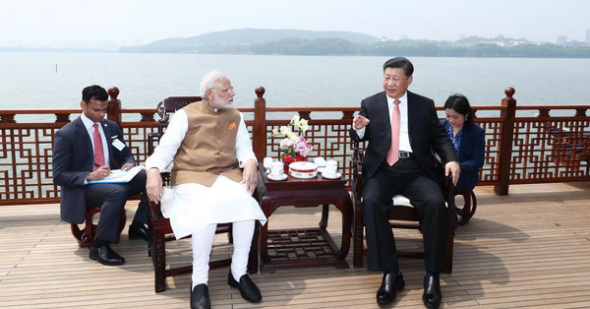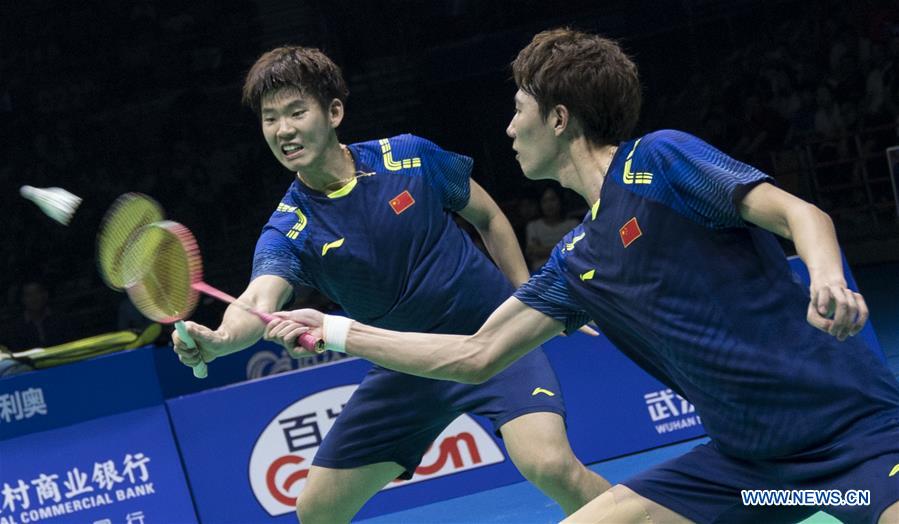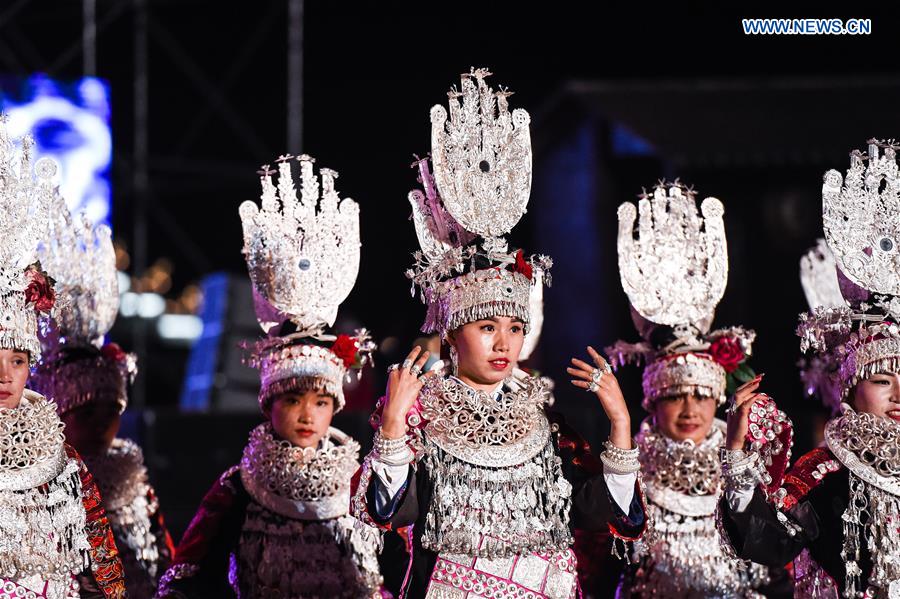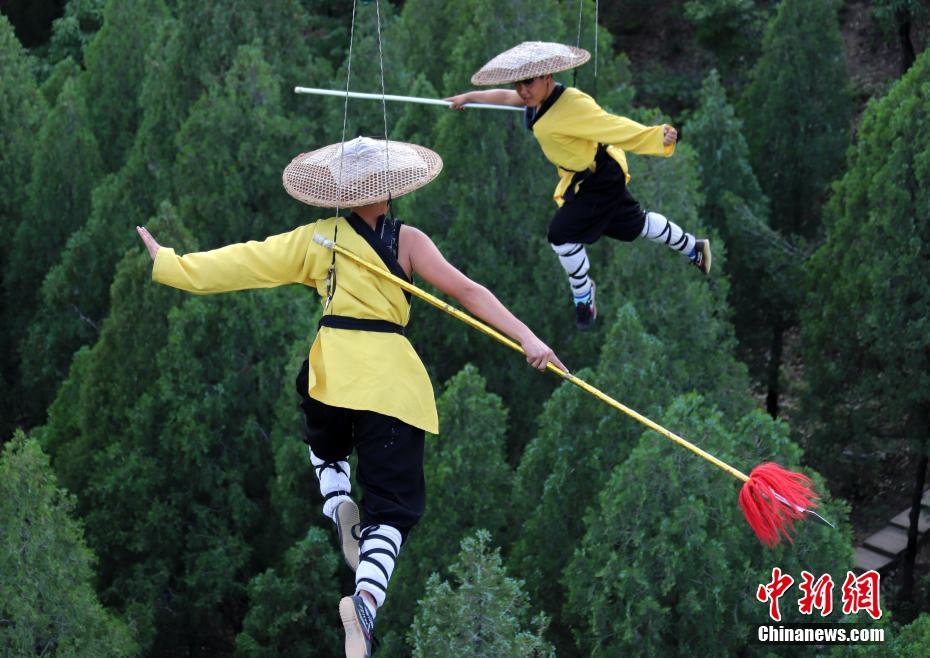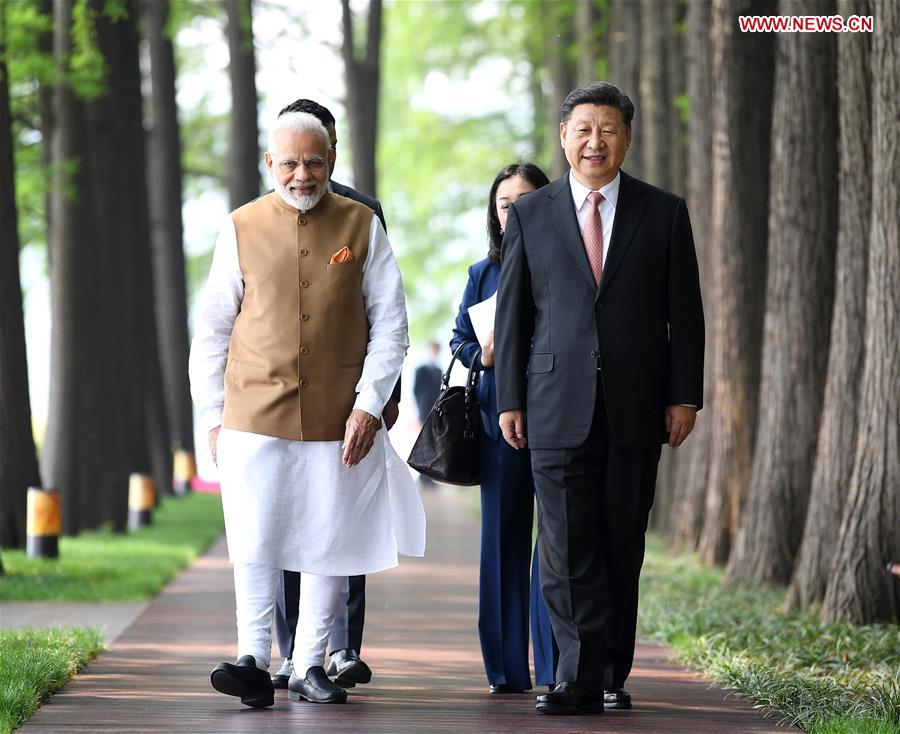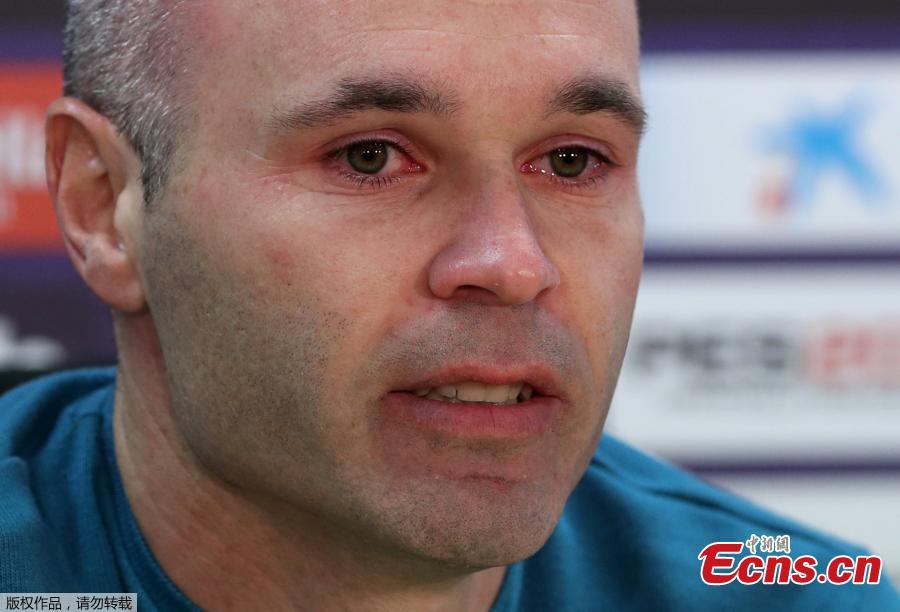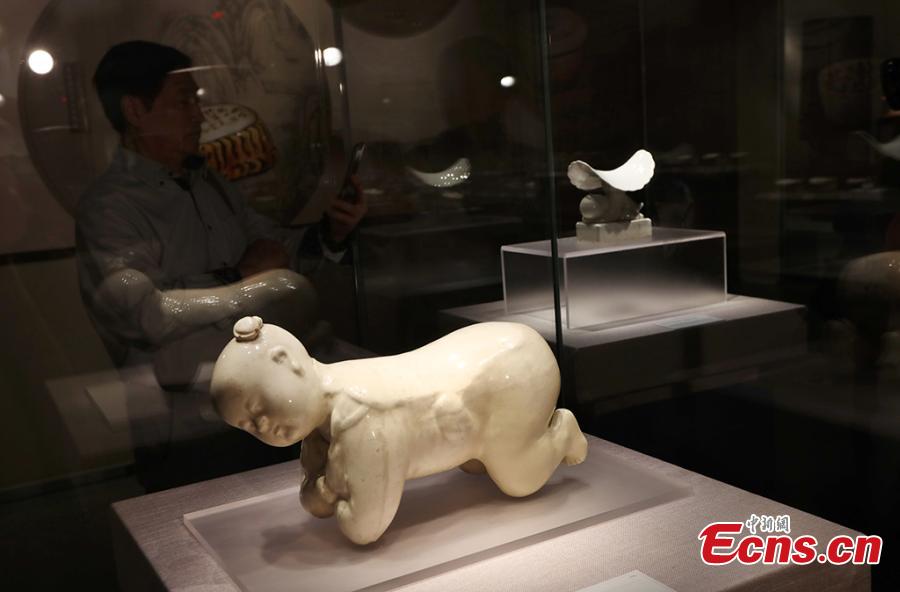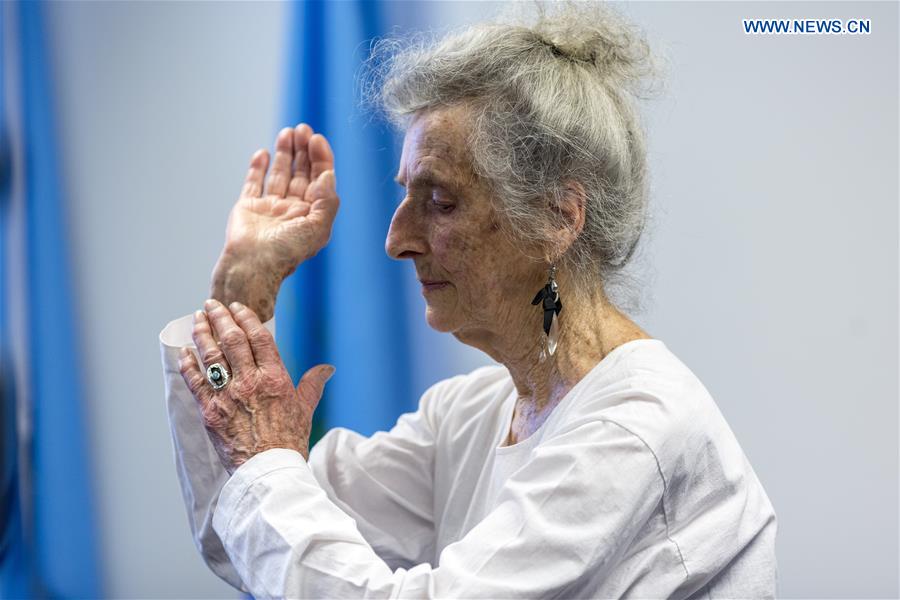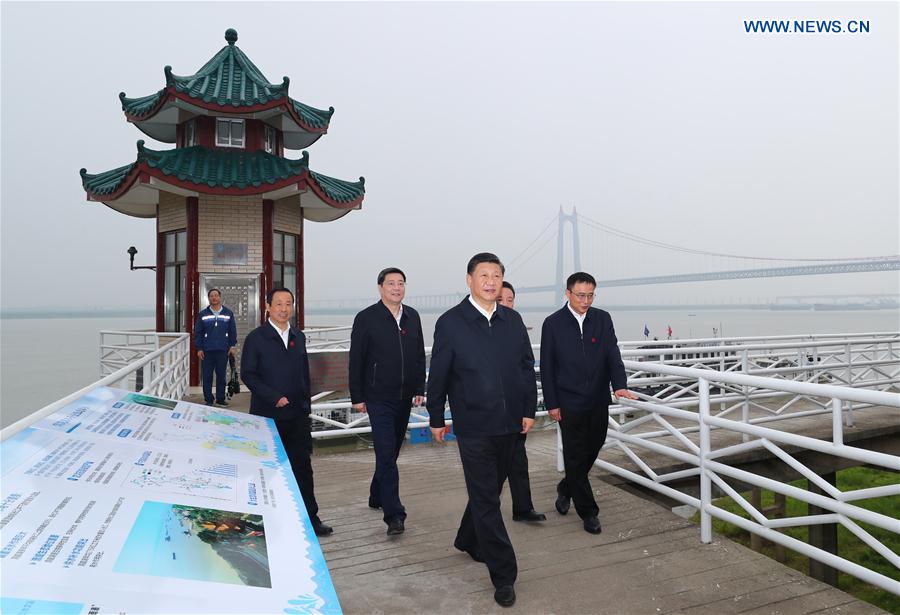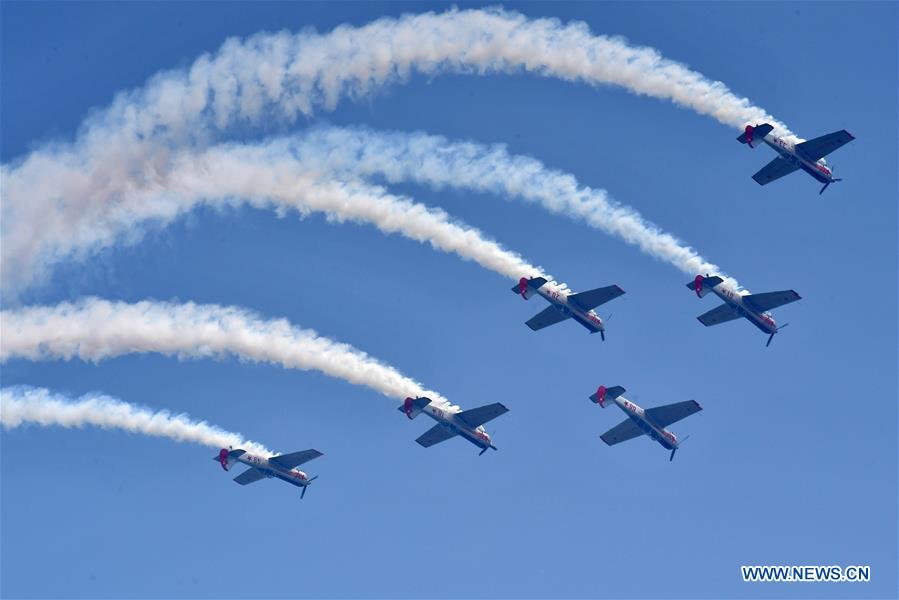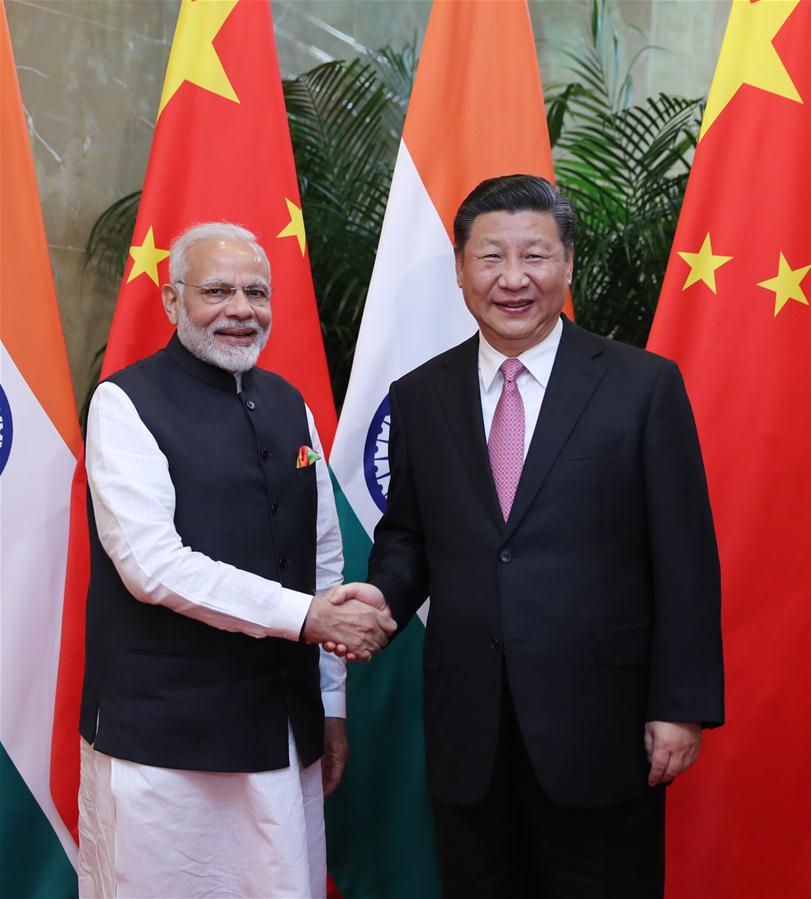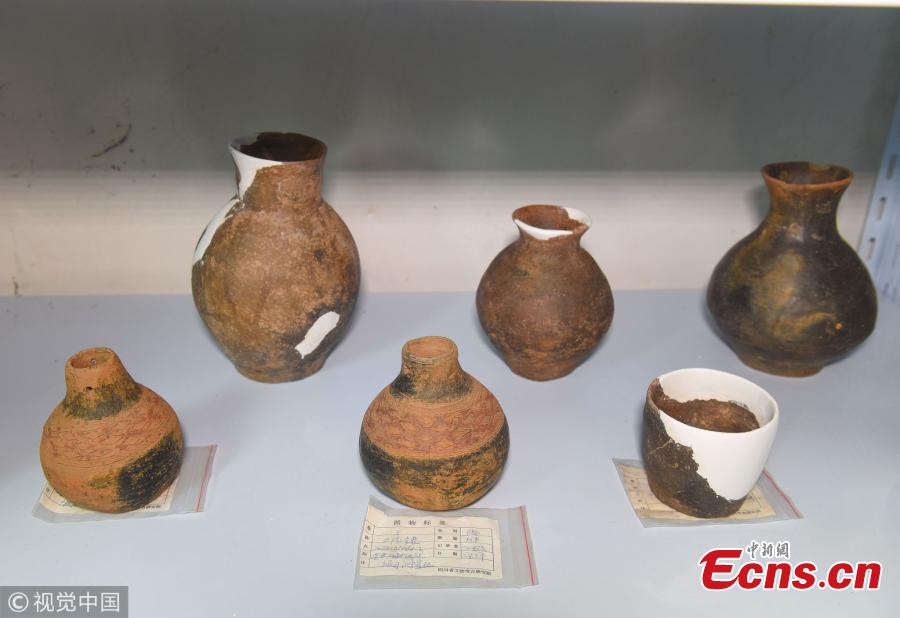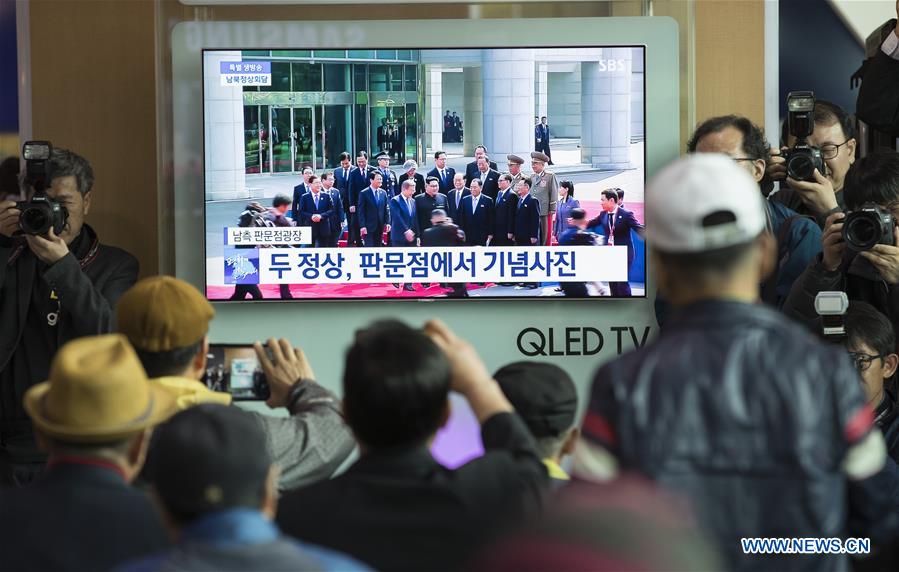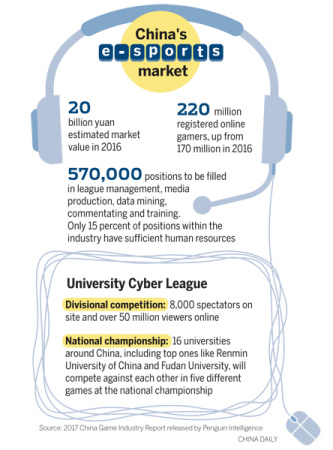
Another report, from market researcher Niko Partner, showed China's e-sports market topped $1.26 billion in 2017, while the total prize money at Chinese tournaments was $64 million-up from $51 million the previous year.
Tencent's King of Glory has amassed over 200 million registered users since its launch in 2015, and an e-sports competition based on the game-King Pro League-has taken the country by storm since its establishment a year later.
The fall season final of the 2017 KPL attracted over 11,000 excited fans at Shenzhen Bay Sports Center in Shenzhen, Guangdong province, in December.
The KPL's live broadcast, video and other media content notched a staggering 10.3 billion online views last year.
Its 2017 spring season live broadcasts were viewed 2.68 billion times, while the live broadcasts of the fall season were viewed 3.6 billion times-a 33 percent increase within six months.
The KPL's 2018 spring season kicked off in March, and with a new competition format and an upgraded version of King of Glory, organizers hope to attract even more fans.
"A year before, nobody knew if the KPL can go this far," said KPL President Zhang Yijia, the general manager of Tencent's mobile e-sports department. "But a year later, we have witnessed the growth of the KPL from zero. At the very beginning there were no spectators. Then there were 100. Then 1,000. Now, we have heard the roar of over 10,000 spectators cheering for their heroes at the stadium."
China's professional e-sports teams play at a much higher level than the university teams.
QGhappy, the team that completed a clean sweep of KPL titles last year, calls its system of cultivating future champions "The Sickle", and it carefully manages its players, even providing them with physicians and psychologists.
Apart from clubs themselves, the league is also helping out. To ensure its sustainable development, the KPL has been working with the clubs to nurture talent, with players assigned professional training sessions, coaches and data analysts.
"The KPL and the clubs are in a win-win situation," said Zhu Bo, QGhappy's founder. "The league is becoming a community of shared interests, and introducing regulations like the salary cap is beneficial."
Apart from Tencent, Alisports, the sports arm of e-commerce giant Alibaba, has also joined the party after launching the Alisports World Electronic Sports Games in March 2016, with 1,200 events planned across 15 Chinese cities. Another Chinese tech giant, NetEase, is also trying to develop an e-sports league based on its own games.










